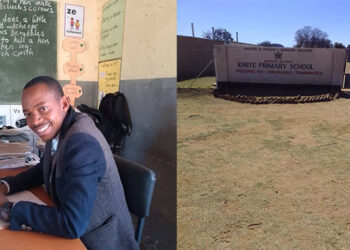MOTHBALLED steel giant, Zisco, has procured the equipment it requires to start limestone and iron ore mining in Redcliff early next year ahead of the much-anticipated resumption of operations, a senior official said.
Once the largest integrated steel plant north of Limpopo, Zisco had the capacity to produce over one million tonnes of steel per year, employing over 5,000 people directly at its peak in the late 1990s ceased in 2008 due to financial limitations.
Among many other adverse effects across the broader macro-economic spectrum, the closure of Zisco, also saw its mining arm, Buchwa Iron and Mining Company (Bimco) folding down. However, in light of the strategic importance of steel to economic growth, the Second Republic is making relentless efforts to bring Zisco back to life.
As part of efforts to resuscitate the steel producer, Zimbabwe’s largest mining house, Kuvimba Mining House (KMH) concluded a management contract with the Redcliff-based company. In an interview, Zisco board chairman Engineer Martin Manhuwa said the signing of the management contract with KMH also signaled a giant leap towards reviving operations at Zisco as the mining house had procured machinery for limestone and iron ore extraction by BIMCO.
“Limestone mining preparations are almost complete with procurement of all the equipment required and de-watering is starting, you know the whole thing (open pits that have been defunct since the closure of mining operations) have been filled up with water and the preparations are now in place to start the low-hanging mining of limestone and iron ore in Redcliff and Ripple Creeck,” he said.
As part of a positive step towards Zisco’s revival, KMH has also engaged Strategen Company (SMS) of Germany as the lead consultancy to drive the revamping of the steel manufacturer. Mining operations, Eng Manhuwa said are scheduled to begin in the first quarter of next year as geological studies, assaying of the mineral deposits were already underway.
Limestone and iron ore are key raw materials in the production of steel.
“The plan is to commence mining of iron ore in Q1 of 2024 and so far we haven’t seen any obstacles.
“But steel plant operations take quite some time given that we are having an organic growth so, between two and three years from now, we should be having the old giant roaring again.”
Following the signing of the management contract, KMH has been doing on the ground undertaking all the preliminary activities that include planning and carrying out feasibility studies such as the type of steel to be produced when operations resume.
“Feasibility studies on Zisco have not been completed as yet, especially the steel plant feasibility. SMS of Germany is yet to establish its presence in the country to start feasibility studies.
“However, mining pre-feasibilities are complete and we need now to come up with detailed geological and mining studies, which are in progress,” said Eng Manhuwa. Under Zisco’s resuscitation which is divided into two segments — mining and the steel project, KMH will inject US$1 million into the project.
The mining group, which does not own Zisco, has since 2020 been acquiring mothballed mining assets and industrial operations using internal resources with a view to give the entities a new lease of life. KMH, which controls the acquired entities either 100 percent or as a major shareholder, has a vast interest in gold, nickel, lithium, chrome, and platinum.
It acquired entities that include Bindura Nickel Corporation, Shamva, Jena, Sandawana, Tiger and Club, Globe and Phoenix mines, and the new Great Dyke Investments platinum project being developed in Darwendale as well as Zimbabwe Alloys (ZimAlloys), creating over 4 000 jobs directly.
Source Byo24News









